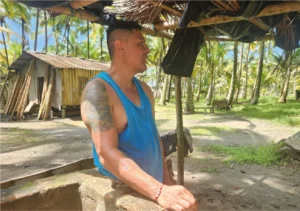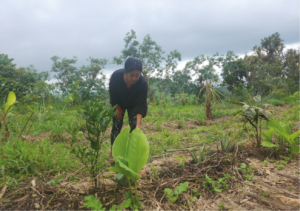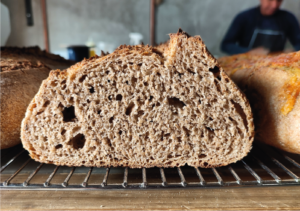
Art 54. Owning your time, owning yourself
Instagram Icon-facebook Youtube Producción y alimentación por Michelle Ruiz y Jorge Krekeler Two people, living at both ends of the island of Muisne in Ecuador,
In Catachilla and Rancho Nuevo, two communities in the municipality of Santivañez, Cochabamba – Bolivia, a group of people have managed to adapt to the climate crisis, particularly to extreme water stress, through their family agro-ecoforestry gar dens. As a collective, they mark a route of mutual nurturing, based on “learning by teaching and teaching by learning”; recovering from their socio-environmental rela tionship common goods such as water, soil, biodiversity and seeds, as well as food culture. Everything begins as an initiative, induced from different projects, gradually achieving a full emancipation from these external supports. The group is constituted as “Ecohuertos Agroecological Producers” and “Eco-Huertos Agroecological Fair” and, perhaps most importantly, they have taken ownership of their process. This transfer of protagonism, from the project to the self-determined and autonomous process of the community fabric, is a common path that many projects seek to achieve but seldom achieve. To the question: why was it possible to achieve what is so difficult to achieve? Usually, there is no possibility to adapt the project to changing and changed realities, thus ending the project in a failed attempt to accommodate reality to the logic of the project…it seems that here the opposite happened.

Instagram Icon-facebook Youtube Producción y alimentación por Michelle Ruiz y Jorge Krekeler Two people, living at both ends of the island of Muisne in Ecuador,

Instagram Icon-facebook Youtube Producción y alimentación por Jorge Krekeler What happens when people seeking a transition to regenerative ways of life re- ceive a basic

Instagram Icon-facebook Youtube Producción y alimentación por Jorge Krekeler While walking along Medellín Street on our way to the downtown area of Mexico City, we